PLATELET RICH PLASMA (PRP) INJECTION
Our one-stop shop ultrasound guided injection clinic making access to pain relieving injections as easy as possible for patients whilst offering the highest levels of expertise and patient care.
PLATELET RICH PLASMA (PRP) INJECTION
Our one-stop shop ultrasound guided injection clinic making access to pain relieving injections as easy as possible for patients whilst offering the highest levels of expertise and patient care.
PLATELET RICH PLASMA (PRP) INJECTION (£450 per injection all inclusive, £1,200 for a program of 3 injections)
Platelet Rich Plasma (PRP) injections can give long lasting reduction in pain associated with range of degenerative joint and tendon problems such as joint osteoarthritis and degenerative tendinopathies. Improvements can last up to a year. As with all injection treatments, some people may experience side effects. The aim of this patient information page is to provide you with the information that you need to know regarding preparation for your injection and post injection management.
WHAT HAPPENS WHEN I HAVE A PRP INJECTION?
First, the clinician who will be performing your injection will give you a call to discuss the procedure and make sure it’s the correct treatment for you based upon your condition and symptoms. They will also screen you for any medical conditions which would prevent you having the treatment. For safety reasons your clinician may recommend delaying your injection until consent has been obtained from your GP if there are any concerns regarding your general medical condition.
There are a few things you also need to be aware of in preparation for the day of the treatment such as keeping yourself well hydrated. The appointment will last around 30 minutes in total. First the clinician will draw some blood, usually from vein in your arm. Then the PRP needs to be prepared by spinning the blood in a centrifuge which takes around 10 minutes. The clinician will then inject the PRP using ultrasound guidance into the joint or tendon to be treated. An ultrasound scan is used to find out more about the condition of the joint or tendon and also to deliver the injection more precisely. Most injections are quick and easy to perform.
WHAT HAPPENS AFTER THE INJECTION?
A significant portion of patients will experience some pain for a week or two after the injection. This is known as ‘post injection flare’ and is usually nothing to be concerned about. It certainly does not mean that the PRP injection will not be helpful for you once the initial discomfort has settled. We try to avoid the use of local anaesthetic if at all possible so the injection site itself can feel a little sore for a day or two.
You may wish to consider arrangements for getting home after your injection, because the joint or tendon can be painful so it may not be appropriate or practical to drive home after the injection.
Also, please consider you activities for the first few days after the injection particularly with the potential of post injection flare. We recommend that patients have the option to have relative rest for 5-7 days after the injection. Try to avoid strenuous exercise for first 5 days after the injection even if feeling comfortable. If you are having an injection around a tendon, you may be asked to avoid heavy impact and loading activities for two or three weeks. Injections around tendons are more likely to have post injection flare and the flare is more likely to last for longer.
We usually treat using a series of 3 PRP injections, each injection is 2 weeks apart from next. If you are still experiencing post injection flare at 2 weeks we would post-pone for a further 2 weeks before next injection.

WILL I NEED ANOTHER INJECTION?
If you find the programme of PRP injections helpful, the treatment may be safely repeated. The effects of PRP have been shown to last around 1 year. Some patients therefore may wish to have a series of 3 PRP injections every year if they are finding them helpful.
POSSIBLE RISKS AND SIDE EFFECTS
Most people have PRP injections without any side effects.
The main side effect is post injection flare as discussed above. Other risks and side effects are extremely rare and are listed at the end of this page. If you would like to discuss any of these further please contact your treating clinician prior to the appointment. You will also have the opportunity to discuss in further detail on the day of your appointment.
WILL IT HURT?
They can be a bit uncomfortable at the time of injection, but many people find that they are not as bad as feared. There may be pain at the injection site for 1-2 days after the injection. Post injection flare can last 2-3 weeks.
INFECTION
Very rarely, you may get an infection in the joint at the time of injection (this is thought to occur approximately 1:50,000 injections). If the joint becomes very painful and hot, you should seek medical attention immediately, especially if you are also feeling generally unwell.
OTHER POSSIBLE SIDE EFFECTS
Some injections may cause trauma to local tissues. The injection will be performed under ultrasound guidance by a highly experience clinician so this would be a very rare complication and every effort is taken to avoid trauma to nerves or vessels.


CAN I TAKE OTHER MEDICATIONS WHEN HAVING PRP TREATMENT?
You can take other medicines with PRP injections, however, we recommend to avoid use of NSAIDs (non steroidal anti-inflammatory drugs such as ibuprofen or naproxen) for 1 week before, and 4 weeks after your treatment as this may have a negative impact on the treatment effect of the PRP injections.
RISKS OF COMPLICATIONS WITH OTHER MEDICATIONS
For example, if you are taking a blood thinning drug, (also called anti-coagulants) you may need a blood test to make sure that your blood is not too thin to have the injection. This is because of the risk of bleeding into the joint.
You therefore must tell the physiotherapist giving the injection if you take anti-coagulants as they may need to discuss this with your GP before giving you the injection.
PREGNANCY AND BREASTFEEDING
Unfortunately, we are not able to offer PRP injections to patients who are pregnant or breastfeeding. There is a lack of research into this area in order to robustly demonstrate that it is safe and entirely without risk.
Your treating clinician is trained to, and will take every appropriate step to avoid injecting or traumatising soft tissue structures, nerves or vessels when performing the injection. However, there is a very small risk that this can occur, particularly with injections at certain locations.


